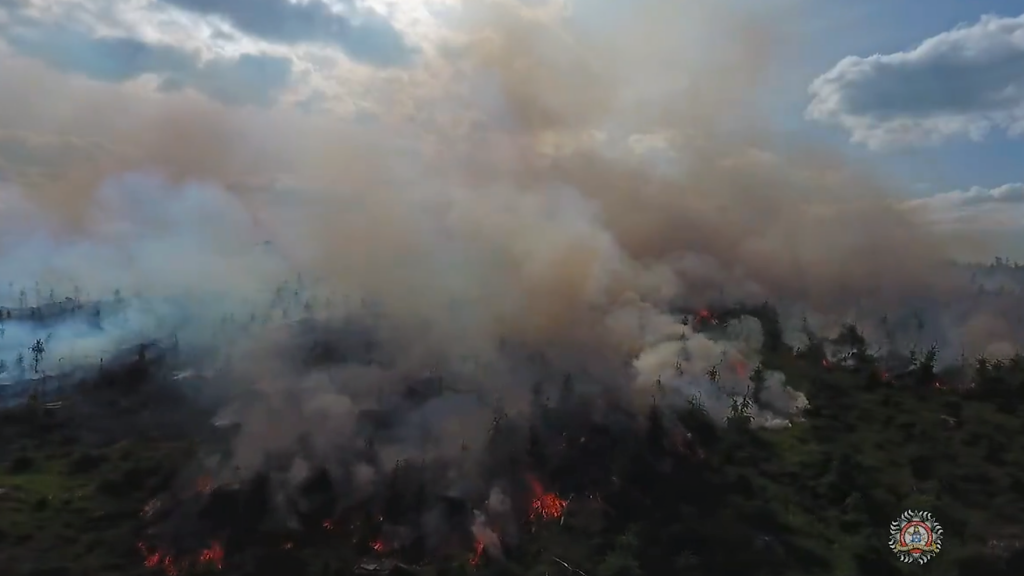Severe heatwave shows ‘time is running out’ to tackle climate breakdown

June 28th, 2019
A severe heatwave has hit major European cities this week with meteorologists warning that temperatures may soar to well above 40 degrees celsius across large parts of the continent.
Record heatwaves, reportedly travelling from Africa, have led to issuing of heat alerts and event cancellations in European cities such as Paris, Berlin and Vienna.
In Berlin temperatures reached 36 degrees Celsius, 35 degrees in Vienna and 33 degrees in Paris, with Parisians reportedly rushed to purchase air-conditioners and other cooling devices as the memory of a 2003 deadly heatwave which killed 15,000 in the country remains fresh.
Climate Action Network (CAN), a leading European climate change NGO, has said that “Europe is racked by effects of climate crisis”, emphasising that atmospheric CO2 levels have exceeded 415 particular per million (PPM) for the first time in human history.
Jean-Pascal van Ypersele, a former Vice Chair for the UN’s Intergovernmental Panel on Climate Change (IPCC), said that extreme weather is a clear indication that the “time is running out” when it comes to decelerating the pace of climate change.
“If decision-makers keep delaying real climate action, devastating consequences of climate change will become a norm in Europe and all parts of society will pay the increasing costs of climate inaction,” he said.
Wendel Trio, Director of CAN also said that “Europeans are paying the high price of the EU’s climate action”, urging EU leaders to take immediate action by increasing the bloc’s 2030 climate targets.
Irish environment journalist John Gibbons, who is currently on an EV road trip in France, told The Green News that the phrase “global warming”, albeit accurate, may have an “unhelpful” impact on public opinion “since the warming effect is uneven and there is still plenty of cold weather”.
Mr Gibbons reasoned that emphasis on the phrase global warming in the presence of extremely cold weather conditions may “lead people to doubt whether global warming/climate change is in fact occurring”.
He added, however, that the current heatwaves in Europe have a “reinforcing” impact on the public’s belief in climate change and may help prod politicians’ into taking more pragmatic climate action.
“The general public in Ireland and elsewhere has begun to become keenly aware that extreme weather events, from droughts to heatwaves, major forest fires etc. are now happening at an unprecedented rate,” he said.
“This makes it a lot tougher for politicians and lobbyists to successfully argue in favour of the do-nothing approach, and this foot-dragging is rapidly falling out of favour.”
2018 was the fourth hottest year on record, with scientists recognising climate change as a significantly plausible culprit for accelerating, global temperatures.
Some researchers have suggested that extreme weather conditions may harden people’s belief in the imminent threat of climate change.

A 2017 study published in the journal Science Direct, found that people’s support for climate adaptation plans as well as belief in the science of climate change increases during extreme weather conditions that last for a period of time.
The study, however, acknowledged that such public opinion impact is transient and diminishes over time due to what scientists have described as our mental adjustment to unusual weather patterns as they materialise more regularly.
Communicating the impact of climate change on extreme weather conditions has also been criticised by climate activists and organisations as ineffective.
In Ireland, it was recently revealed that Met Éireann staff were advised not to talk “despair” over climate change and avoid linking extreme weather conditions to the accelerating pace of global warming.
In the US, a recent study conducted by media watchdog group Media Matters revealed that American television networks rarely discuss global warming and climate change when reporting on extreme weather.
[x_author title=”About the Author”]







